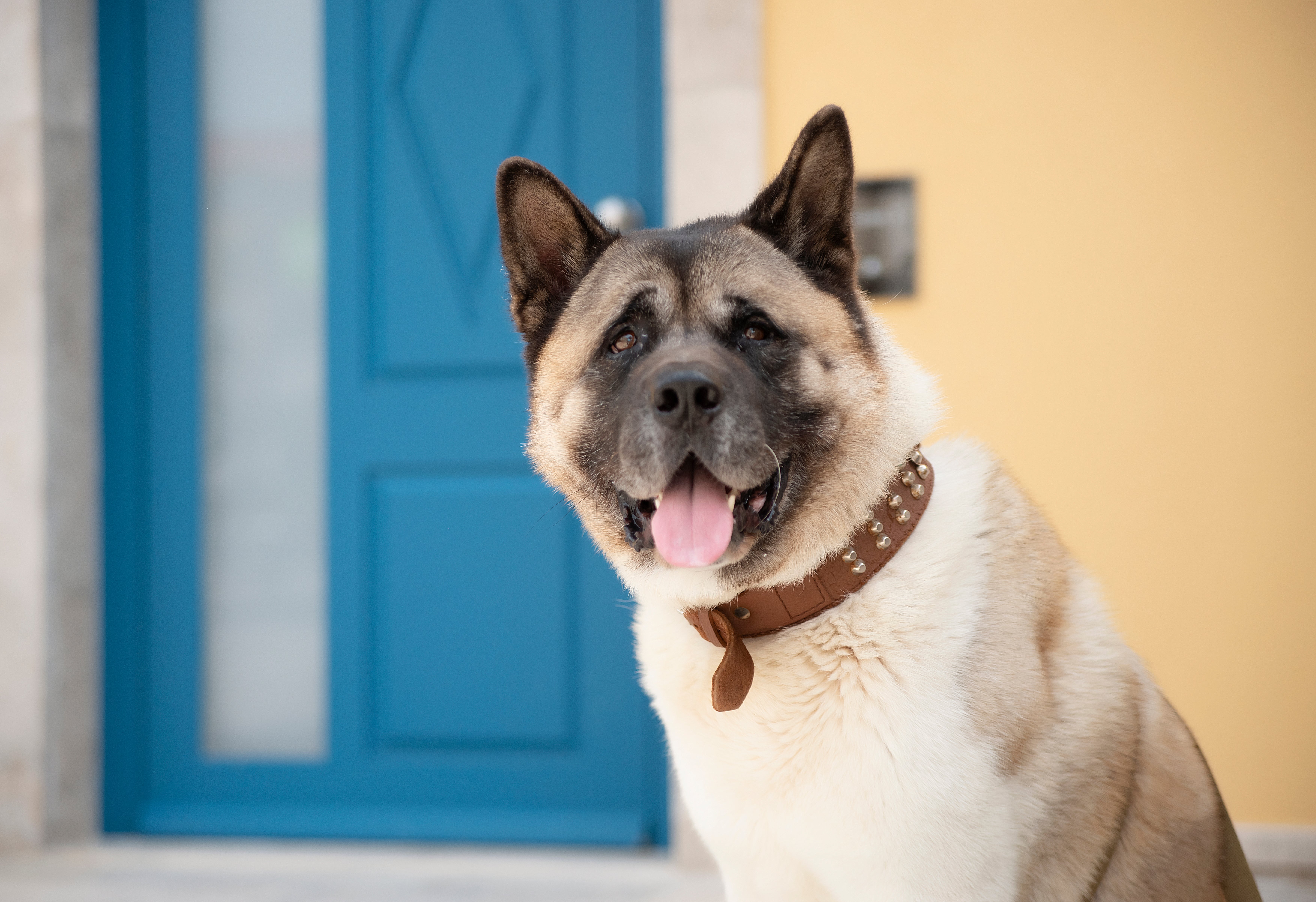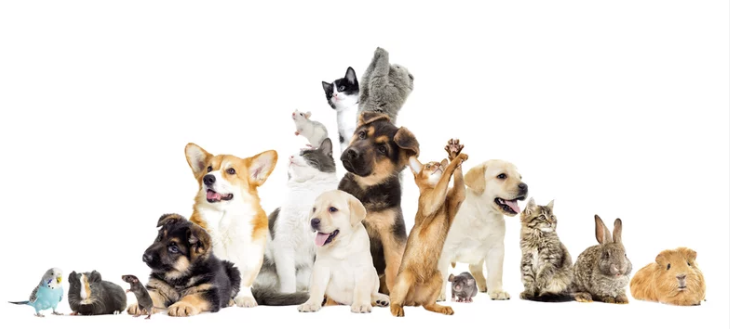Japanese Akita
With a build like a linebacker and a model-esque posture, the Japanese Akita dog breed oozes quiet confidence. Their dark, almond-shaped eyes sparkle with intelligence, and their perky little ears are always on the lookout. Their luxurious double coat comes in all sorts of colors (think red-fawn, sesame, brindle, and white), making them the ultimate head-turners of the dog park. These dogs are as independent as they are loyal. They need an experienced owner who can handle their stubborn streak with a gentle hand. If you're looking for a loving companion who will shower you with affection (and fur!), but also expects a little respect for their personal space, then an Akita might just be your perfect match.
Breed characteristics carousel
Learn More
Need to Know
- Good for experienced owners
- Extra training required
- Generally healthy breed
- Enjoys daily walks
- Large dog
- Some drool
- Requires grooming every other day
- Quiet dog
- Protective and alert dog
- Could have issues with other dogs
- May need additional training to live with other pets
- May need additional supervision to live with children
- Needs a large yard
- Best suited to rural areas
- Can be left alone occasionally with training
- AKC Registered Breed

Personality
Think of Akitas as the Beyoncé of the dog world: strong, independent, and not afraid to be a little extra. These pups are all muscle and personality, so they need experienced owners who can navigate their stubborn streak with a gentle hand. They’re fiercely loyal to their squad but can be a bit icy to strangers. Don’t be fooled by their quiet demeanor, though, these courageous dogs are born protectors who alert their owners without excessive barking.
The largest dog in Japan, the Akita hails from the mountainous northern region of Akita. First seen in the 1600s, they were tough competitors in duels and ace hunters. Akitas are more than just muscle, though; their loyalty and smarts made them cherished companions for all sorts of jobs, including police work. Today, they are cherished family companions, showering their humans with love and loyalty.
These fluffy friends can be a bit of an enigma and require a more experienced owner who’s just as pumped for training sessions as they are for playtime. While they love a good game of fetch and playing outside, they also like their peace and quiet, so homes with rambunctious little ones and a revolving door of visitors may not be the best fit. However, older children who like me-time just as much as their Akita will be a perfect match. They’re fiercely devoted to their family but tend to be aloof with strangers; patient owners who can read their dog's body language are a must. With the right owner, these loyal companions can bring years of love and enjoyment.
Think of Akitas like Goldilocks on the energy scale: just right. While they won’t be dragging you on marathon walks, these pups do need some daily exercise to keep their muscles toned and minds stimulated. A jog or a brisk walk around the block is a great way to start their day, but don’t be surprised if they’re also down for some playtime in the yard. They can unleash their inner zoomies with a good game of fetch or chase. After some exercise, Akitas are happy to lounge around the house and relax with their loved ones.
Taking after A-list celebrities, Akitas prefer their privacy. These big pups need room to roam, so tiny city apartments are not ideal. An expansive, fenced-in yard is their personal playground, perfect for patrolling and keeping an eye out. Their regal air can sometimes come off as aloofness toward strangers, so constant doorbell serenades from neighbors and delivery people might stress them. A more rural home with a touch of peace and quiet is a five-star experience for them.
Akitas’ stunning double coat keeps them comfortable year-round, but it comes with a furry downside—they shed a lot. Regular brushing two to three times a week with a slicker brush is key. Twice a year, during heavy shedding seasons, a metal double-toothed comb is your best friend to tackle the dense undercoat. Be prepared for some extra fur flying around, but consistent grooming keeps your Akita looking their best and your home relatively fur-free.
These powerful pups pack a playful punch, but they need an experienced owner who is committed to training to navigate their independent spirit and headstrong nature. They might be fiercely loyal and follow you like your own personal shadow, but training an Akita can be more like negotiating with a furry CEO. Some are less enthusiastic about obedience, so while traditional training might not always be their favorite activity, management and a strong bond are key.
These pups will shower you with love and become your personal protector, but they’re a furry bodyguard who enjoys their alone time, too. While fiercely devoted to their family, Akitas tend to give outsiders the cold shoulder and can be a bit wary of the chaos that can come with a bustling household. This makes them a better fit for experienced owners in a calmer environment. Older children who can respect their furry friend’s personal space, however, make for excellent two-legged siblings to your Akita.
The cost of a Japanese Akita from a breeder is significantly more than the cost of adopting one from a local shelter or rescue. The adoption fee usually covers additional items such as spaying or neutering, vaccines, and microchipping.

Learn more about feeding and caring for your Japanese Akita on Purina.
Did You Know?
- There are two Akita varieties: the Japanese Akita (Akita Inu) and the American Akita. They have slight differences in build and coat.
- The most famous Japanese Akita was Hachikō, the loyal companion of Tokyo-based professor Eizaburo Ueno. Each day, Hachikō would accompany Eizaburo to the train station and would be waiting for him when he got back. Today, there's a statue of Hachikō in To
- Unlike many dogs, Akitas are meticulous groomers. They tend to be very clean, spending a good amount of time licking their fur like a cat.
